Autoethnographic Recording
MethodAttuning
MethodUnderwater Sound Loggers
ToolWe deploy arrays of autonomous audio recorders to record aquatic conversations in intimate and spatial ways. These hydrophones are placed and retrieved during scuba diving.
Underwater Drone
ToolWe use an underwater drone for video documentation and mapping of underwater terrain.
Custom-made Sensors
ToolWe build and use custom-made sensors that track sea currents, temperature and light conditions of underwater locations.
Underwater Photography & Video
Method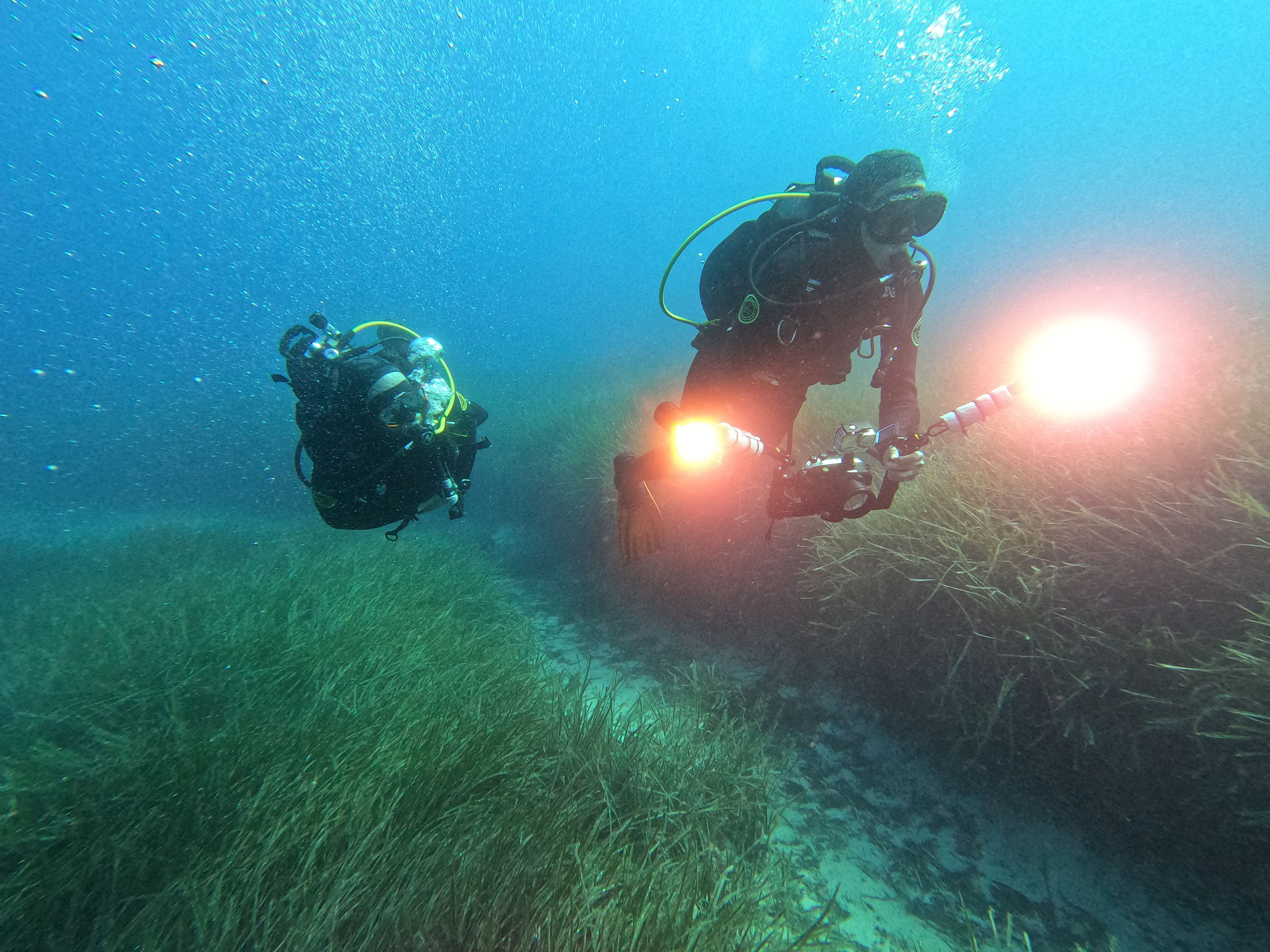
ItO researchers with underwater camera gear. STARESO, June 2024
We use static and moving underwater cameras for ethnographic and prototype documentation. Also for the development of communication and interaction interfaces to the terrestrial world.
Underwater Sketching
Method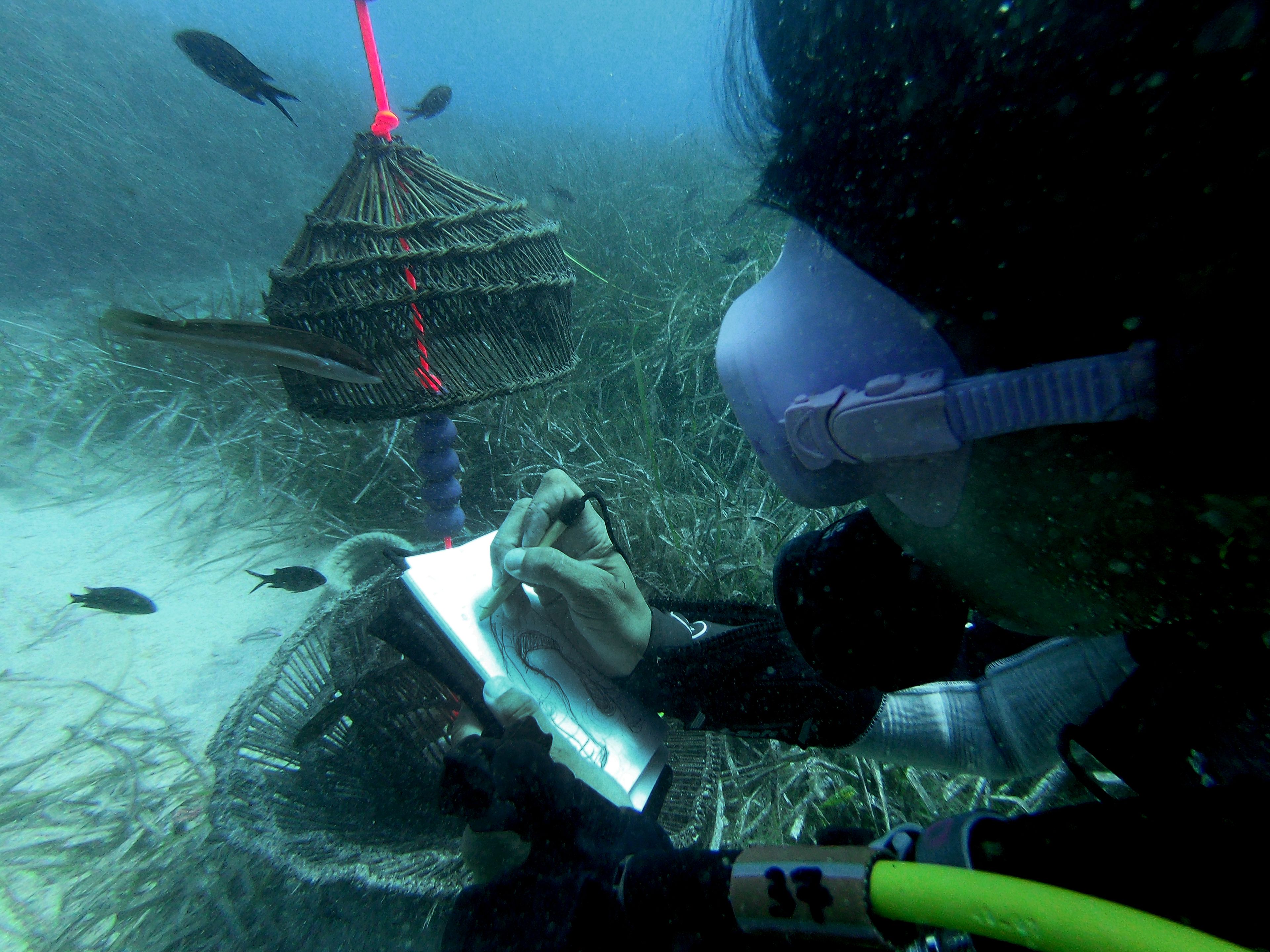
We use underwater sketching as a design ethnographic method to document field relations in the ocean, as well as a communication device for underwater exchange.
Hydrophone
ToolScanning
MethodMonitoring
MethodVideo
MethodDocumenting the ephemeral, the oral histories and fieldwork experiences.
Representing the ideas, framing gazes and telling stories.Microscope
Tool»Where the telescope ends the microscope begins, and who can say which has the wider vision?«
Victor HugoThrough the objectives and binocular lenses of the microscope, humans are able to observe tiny species, patterns and structures below the threshold of unaided sensory perception. Zooming in to the microscopes is opening worlds, where the smallest communities, medias, populations and habitats unfold.
As a common apparatus of science, what do these representations convey, what knowledges are made visible with the help of light or electronic rays?
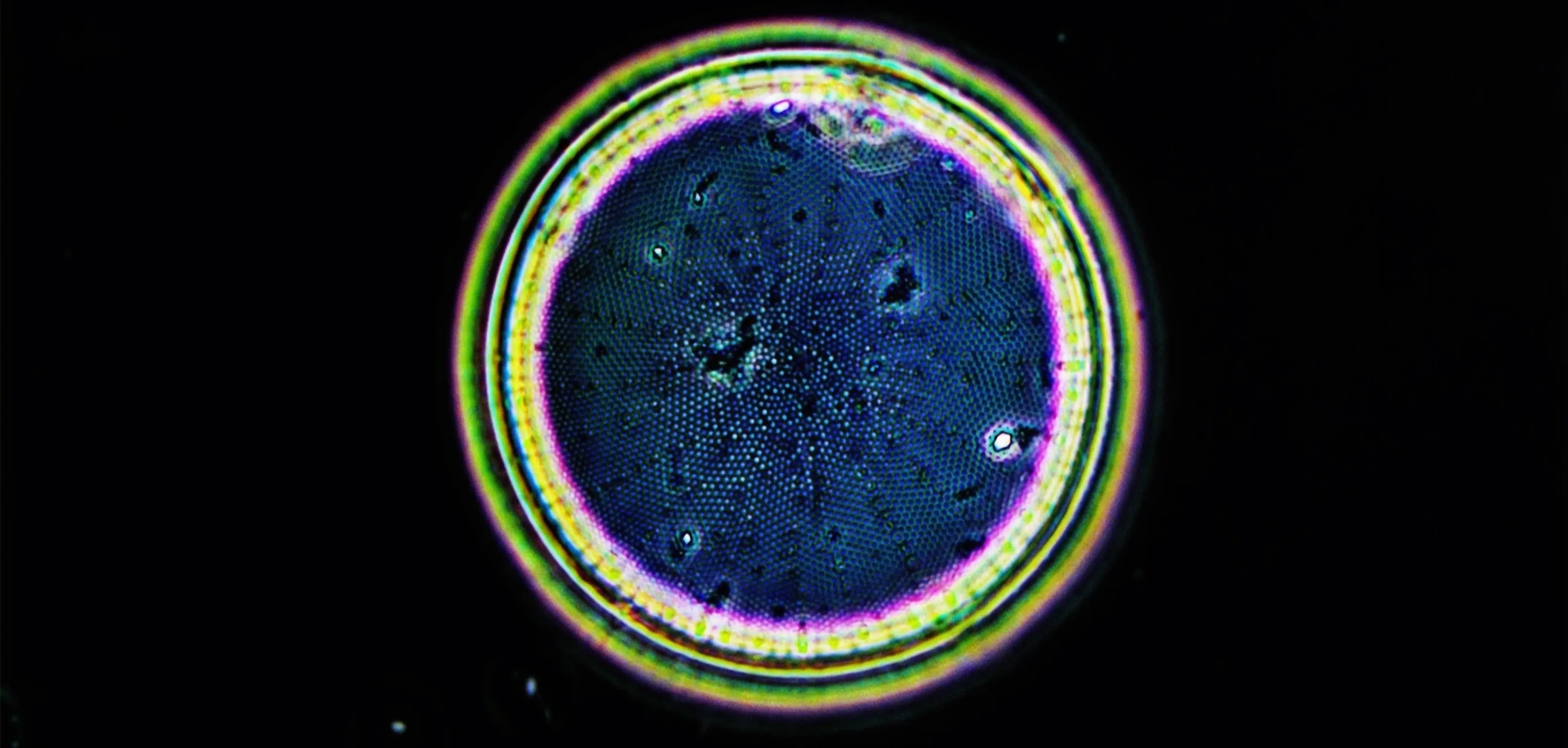
Scuba Listening
MethodPlankton Nets
Tool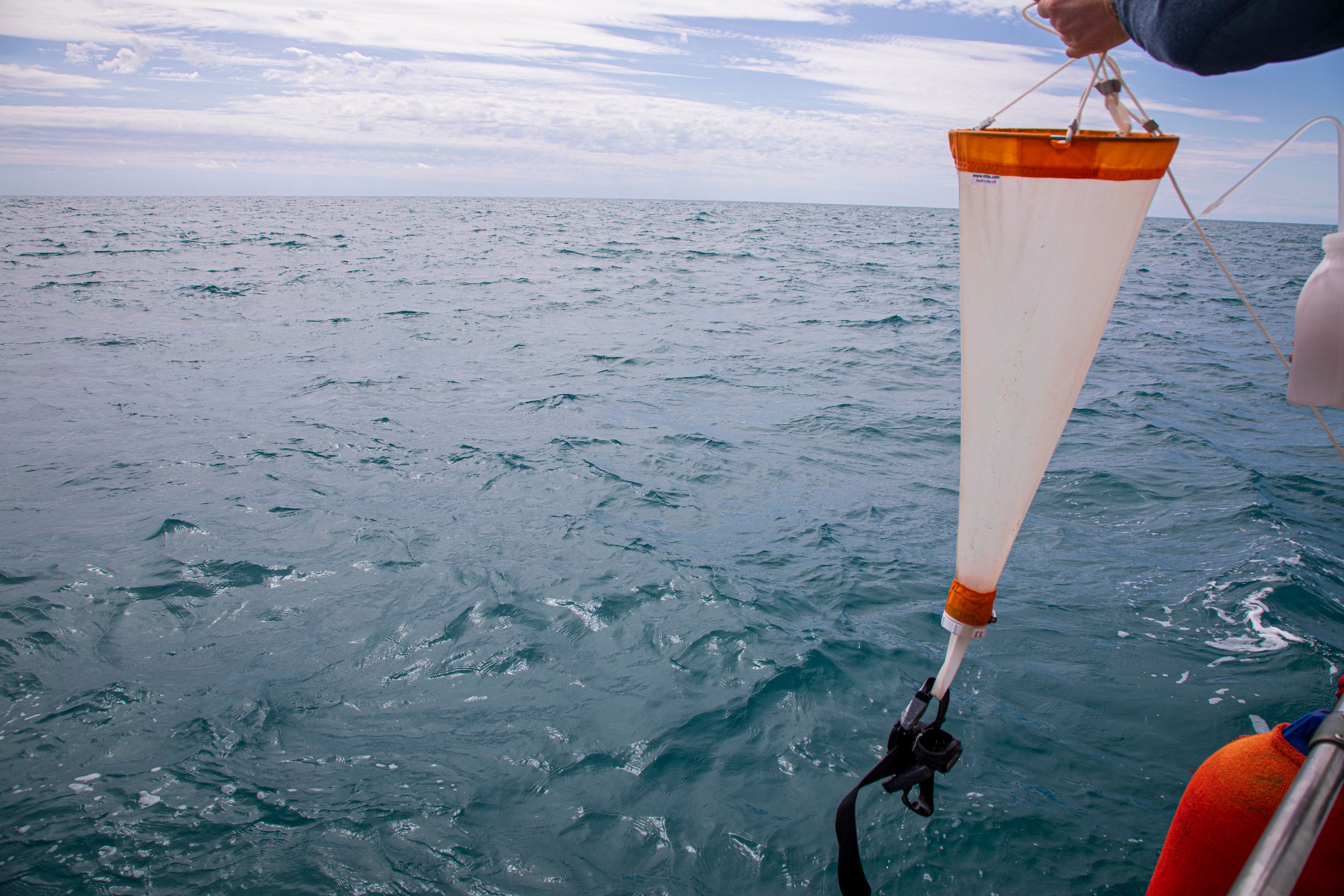
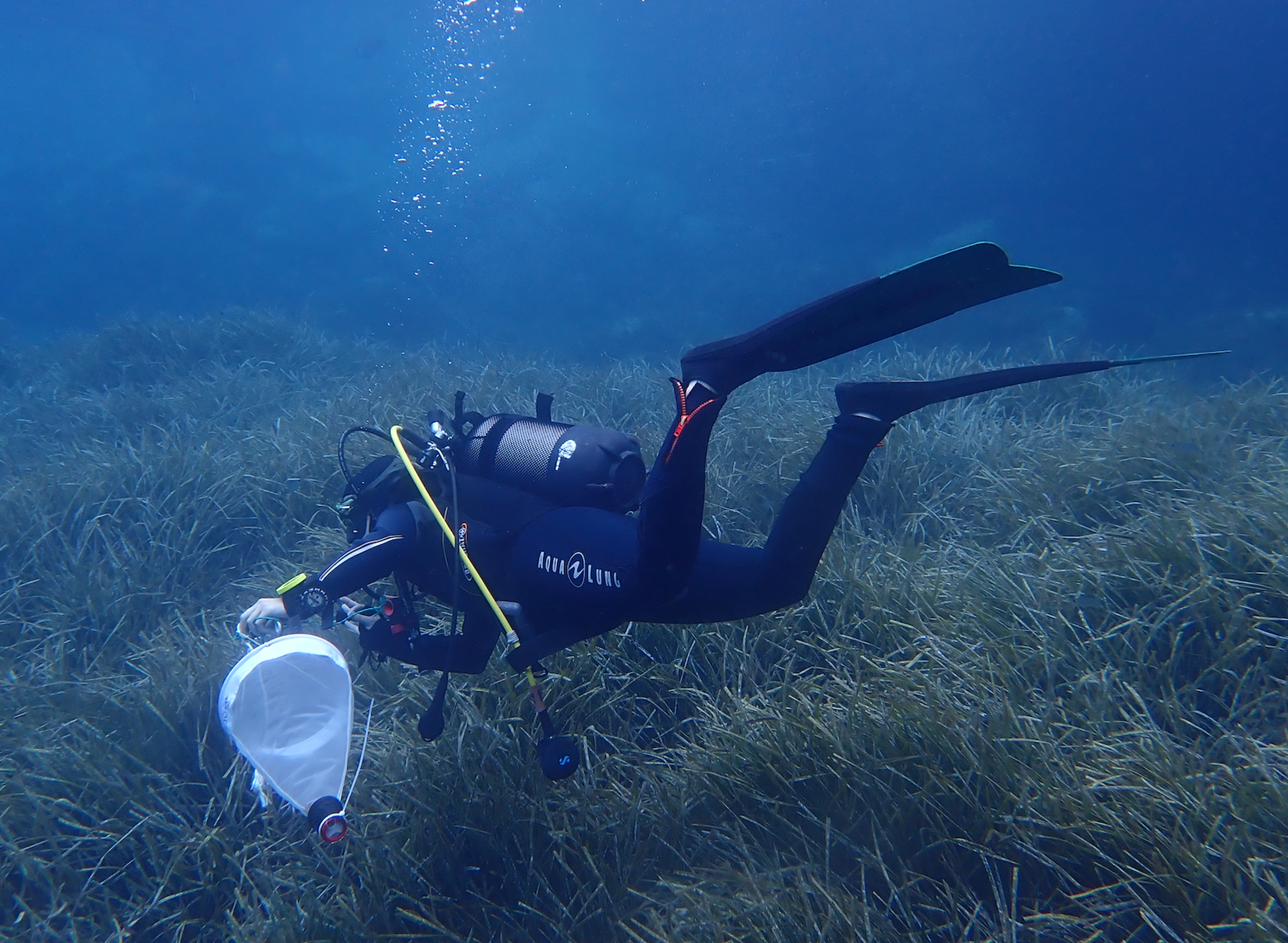
We use plankton nets in shallow and deep waters. They are one of the oldest and simplest method of collecting and sampling plankton used until today. The cone-shaped tool is filtering water as it's towed, capturing microscopic plankton. The flowing water in and through the meshed hose of the net captures only entities smaller than the mesh size.
Gathering plankton is gathering essential data for ecological, climate, and biodiversity studies. The snapshot of life reveals which populations are flourishing, which developmental stages are present and show in comparison with a time-series information about balances and imbalances.
As interdisciplinary inquiry the act of sampling can be seen not only as a scientific procedure but also as an artistic practice—a form of attunement to the ocean’s elusive microcosm.